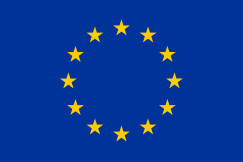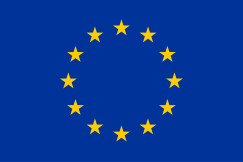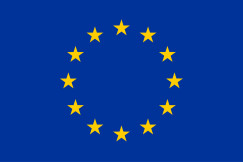Legislation
27 March 2025
Novel Foods Regulation
Legislation
27 March 2025
1. Healthy, balanced and sustainable diets for all European consumers
2. Prevention and reduction of food loss and waste
3. A climate - neutral food chain in Europe by 2050
+4 more
Login / create an account to be able to react

Novel Foods are regulated in the European Union by Regulation (EU) 2015/2283. It lays down rules for the placing of novel foods on the market in the European Union (EU), ensuring a high level of protection for human health and consumers’ interests.
Novel Food is defined as food that had not been consumed to a significant degree by humans in the EU before 15 May 1997, when the first Regulation on novel food came into force.
Novel Food can be newly developed, innovative food, food produced using new technologies and production processes, as well as food traditionally eaten outside the EU.
Editorial team
European Commission - DG SANTE
Topics
EU-27
EU Institutions
-
CoC aspirational objectives
-
-
1. Healthy, balanced and sustainable diets for all European consumers
-
2. Prevention and reduction of food loss and waste
-
3. A climate - neutral food chain in Europe by 2050
-
4. An optimised circular and resource-efficient food chain in Europe
-
5. Sustained, inclusive and sustainable economic growth, employment and decent work for all
-
6. Sustainable value creation in the European food supply chain through partnership
-
7. Sustainable sourcing in food supply chains
-
Share
Food businesses must determine whether their product falls under the relevant legislation before placing it on the market. If there is uncertainty, they can consult national authorities, who may seek guidance from other EU countries and the European Commission. The Commission is responsible for maintaining a positive list of authorised novel foods, first established on 1 January 2018, and updating it regularly. To be authorised, a novel food must not pose a risk to human health based on scientific evidence, mislead consumers—especially if it replaces another food with significant nutritional changes—or be nutritionally disadvantageous under normal consumption.
The authorisation process for novel foods can be initiated by an applicant, whether an EU country, a non-EU country, or another interested party, or by the Commission itself. Applications must include key details such as the name, description, composition, production processes, and scientific evidence proving the food's safety. The European Food Safety Authority (EFSA) may be consulted for a safety assessment before the Commission presents its final opinion to the Standing Committee on Plants, Animals, Food and Feed, whose approval is required for a product to be added to the positive list. Special provisions exist for traditional foods from non-EU countries that businesses wish to sell in the EU.
Certain categories of food are excluded from this regulation, including genetically modified foods covered by Regulation (EC) No 1829/2003, as well as enzymes, additives, and flavourings governed by other specific regulations. Extraction solvents fall under Directive 2009/32/EC and are also not subject to these novel food rules.
Related regulations:
- Commission Implementing Regulation (EU) 2017/2468 laying down administrative and scientific requirements concerning traditional foods from third countries.
- Commission Implementing Regulation (EU) 2017/2469 laying down administrative and scientific requirements for applications referred to in Article 10 of Regulation (EU) 2015/2283 on novel foods.
- Commission Implementing Regulation (EU) 2017/2470 establishing the Union list of novel foods.
Comments (0)
See also
-
35
Directive on Consumer Protection Rules (Modernisation Directive)
- Categories
- 2. Prevention and reduction of food loss and waste 3. A climate - neutral food chain in Europe by 2050 4. An optimised circular and resource-efficient food chain in Europe +3 more
-
10
Renewable Energy Directive
- Categories
- 2. Prevention and reduction of food loss and waste 3. A climate - neutral food chain in Europe by 2050 4. An optimised circular and resource-efficient food chain in Europe +3 more
-
19
Water Reuse Regulation
- Categories
- 2. Prevention and reduction of food loss and waste 3. A climate - neutral food chain in Europe by 2050 4. An optimised circular and resource-efficient food chain in Europe +3 more




